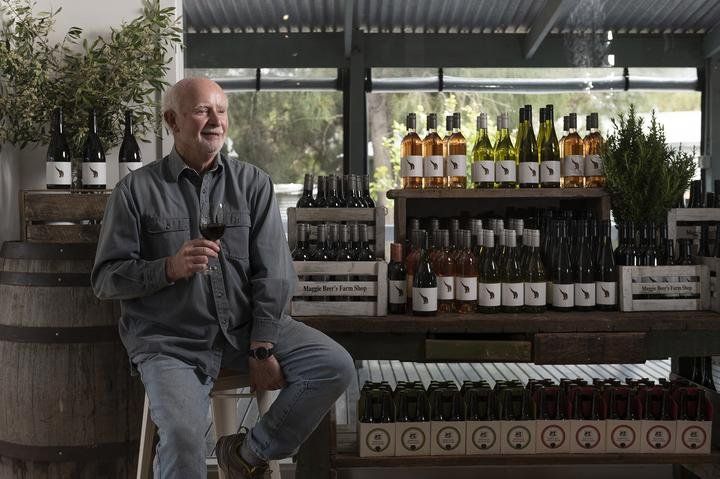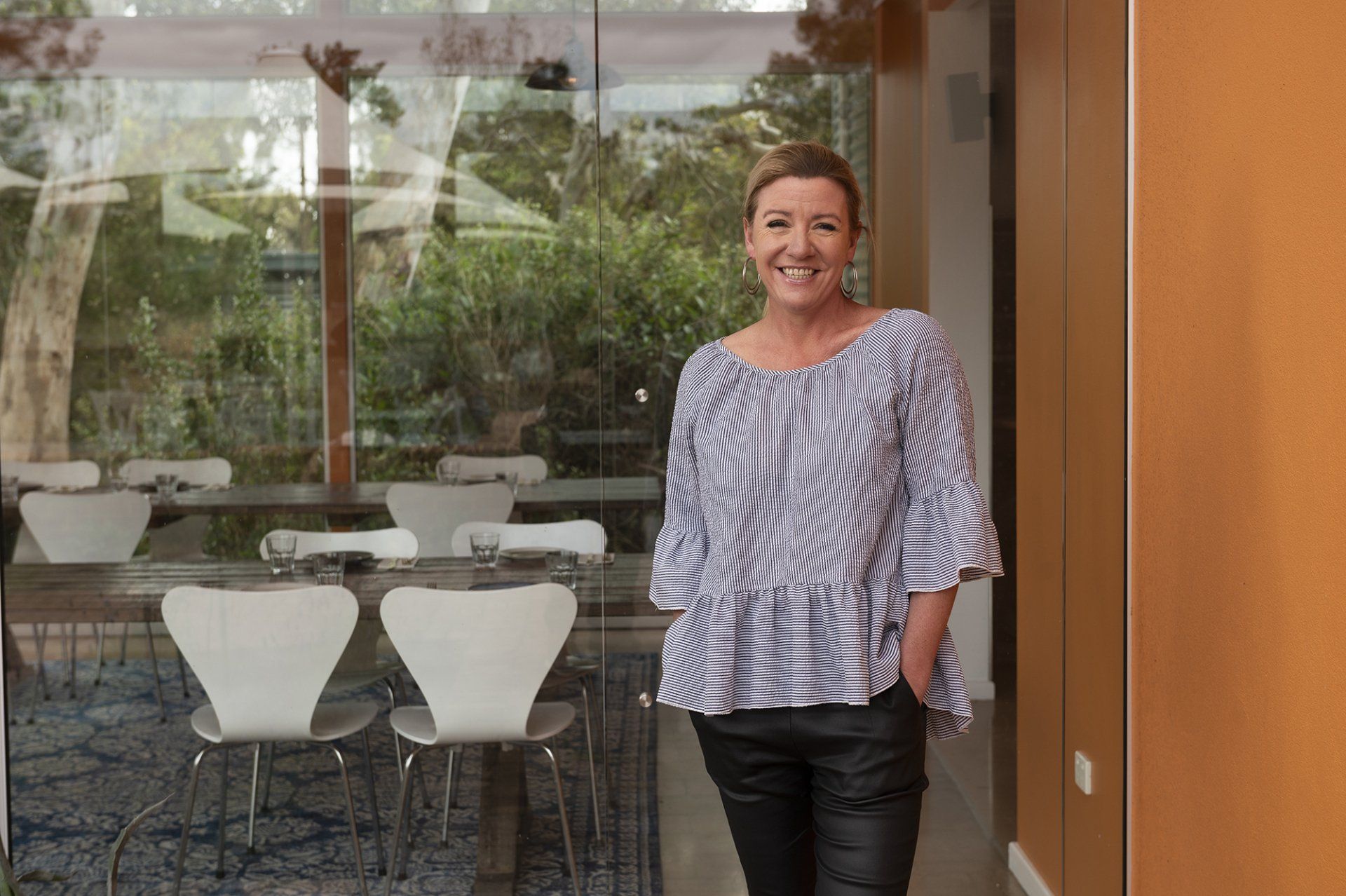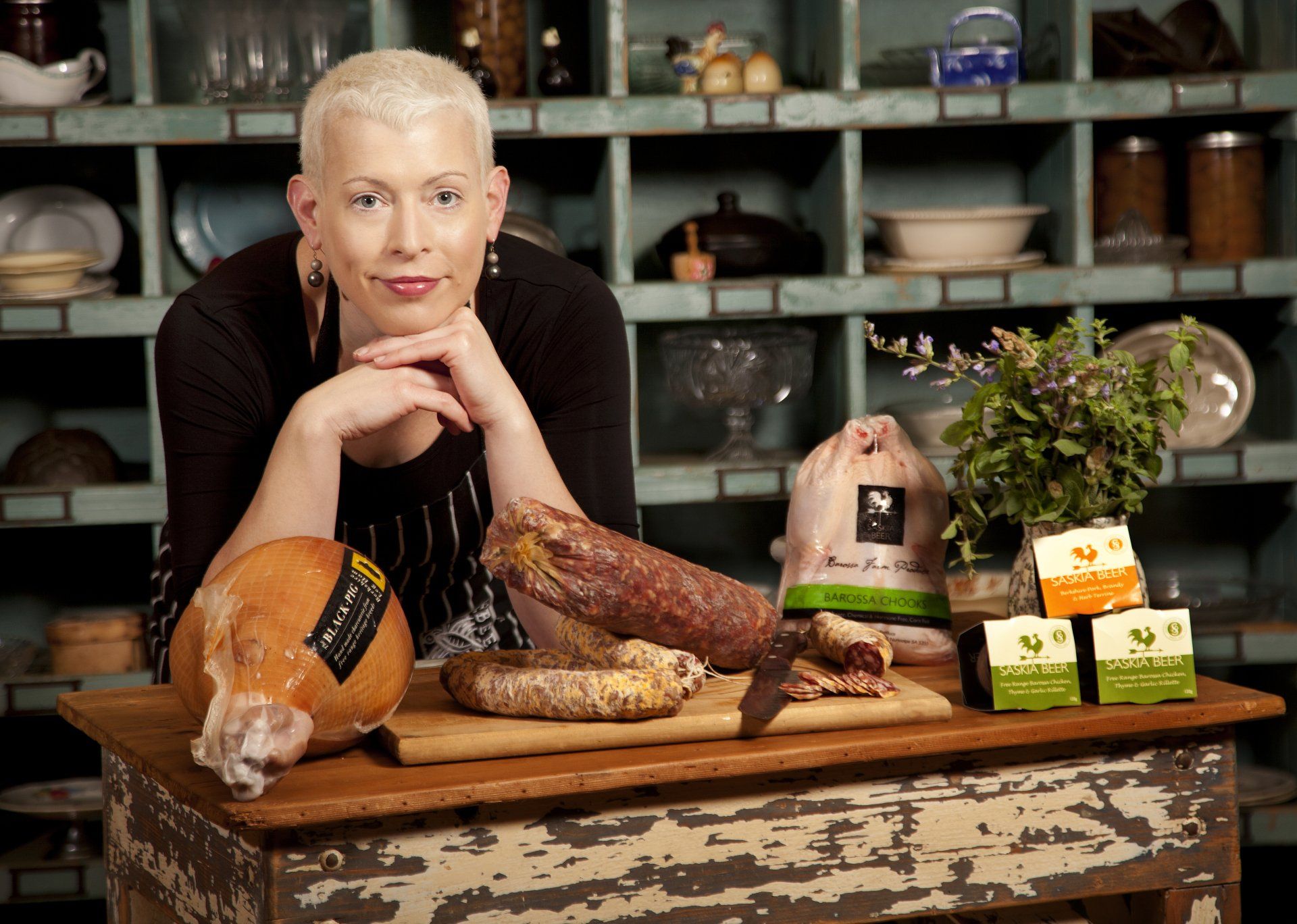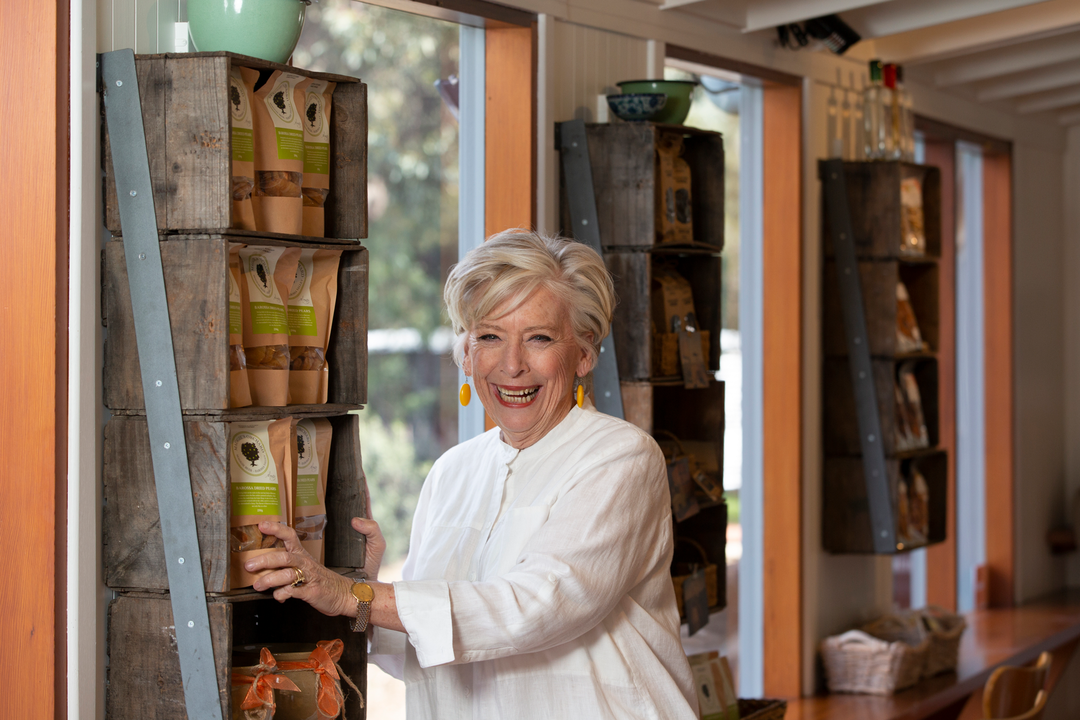Our family story
I grew up in the Western Suburbs of Sydney and began travelling when I was 19 years of age. First to New Zealand, then Europe, yet the luck of my life was meeting Colin in the Victorian ski fields. Marrying in Sydney and after a few years of high pressure jobs and our decision to come to the Barossa to live, to follow Colin’s vision of farming pheasants. I often use the expression ‘my boy from Mallala', small country town on the Adelaide Plains; However as the first Beer who arrived in Australia from Silesia to the Barossa Valley in 1848. Colin’s Great great Grandfather, he had plenty of claim to be almost a local but I was definitely a city girl who adapted to the country like a duck to water.
Colin and I bought the property that is still known as ‘The Pheasant Farm’ early 1974 just months after our first daughter Saskia was born. Two years later our second daughter Elli arrived and so began our strong, incredibly emotional connection to this property that will remain always with the family as it is today.
I so often talk about cooking from scratch and that’s how my cooking developed yet first the farm happened. Colin building the pheasant runs; then the dam built in 1976 that for years looked like a moonscape of mud until the hundreds of trees we planted finally grew through the clay all the while working at breeding the pheasants and selling them to restaurants. I can assure you it wasn’t an easy time.
Then Colin won a Churchill Fellowship in 1978 to study Game Bird Breeding in Europe and America as there was no one in Australia to learn from. It was the Churchill Fellowship tour on the border of Scotland that the idea of a Farmshop selling everything grown on the farm direct to the public was born. This Fellowship was pivotal in this food journey of ours that began in January 1979 with the building and opening of the Farmshop on our return from the study tour; then known as the Pheasant Farm Farmshop…. Quite a tongue twister. We copied this simple concept of cooking every bit of produce we raised or grew. I had grown up in a family where food was incredibly important and had inherited an instinct for just ‘knowing’ how to cook from my father and was always an adventurous eater so it just felt natural to do so.
It was an exciting but exhausting time. I found I was doing what I loved; cooking whatever we had to hand and always learning more. I made pates; pickled quails eggs that meant that every night with bucket after bucket of boiled eggs that needed peeling between my legs telling my daughters stories. I cooked the Pheasants Colin raised for the customers and carved them and served as if it were a take away, always wanting to show how delicious they were and give people the confidence to cook with them so they would buy the raw bird to take home. I roasted quail, stuffing them with currants, citrus and herbs and made terrines. Anything I could make from what we were growing. It was an instant success with the public ‘finding’ us, which led to these incredibly busy days but taking very little as we charged so modestly as I saw it as an education process. It wasn’t sustainable and was burning me out. We were so lucky to have my Mother live with us and be the extended family helping with the girls and indeed helping me in every way in the kitchen too.
Something had to give and yet when I think of the audacity that with no experience we thought we’d just get bigger and add another building to our humble Farmshop and open as a Restaurant. As a family every one of us have had not only ideas but the drive to make them happen and so the humble original Farmshop became part of the restaurant and is still part of the building today.
So the Pheasant Farm Restaurant was born. At first a ‘able d’ hote’ menu which meant it was set each day with no choices, serving pate and pickles; roasted quail, then Pheasant then dessert for a whole $7.50 per head. We worked so hard. Colin would be pruning the vines in winter, raising the Pheasants, delivering to Adelaide and then working on the floor (as we say in restaurants). At night I would still peel the pickled quail eggs and wash all the tablecloths and serviettes for the restaurant.
Looking back, how we ever did it is hard to imagine. However, it was a constant learning process but also immensely rewarding in that there is nothing quite as seductive as doing what you love and having others loving it too.
In about 1981 an Adelaide Chef Janet Jeffs came to work with me having been burnt out from the rigours of running a successful Adelaide restaurant. Janet stayed for over a year and had so much skill to impart and full of ideas too and was such a gift to me as she gave me confidence when she moved on to open her own restaurant in the Clare Valley, I was so at ease continuing with the alacarte menu Janet had started. I became more and more excited by being ‘given my wings’ .
Our decision to only open for lunches Wednesday to Sunday was to have as much family time as possible with our girls, as every weekend of their young lives we worked and weekends always peak times and often Saskia and Elli would come in and help to be with us, especially when it was a birthday or Mother’s or Father’s Day. Saskia would help in the kitchen even being dishie if needed just to be there and Elli would help her Dad out front. It was the setting of a path for their future without us realising it then.
Running a restaurant of this nature was so demanding as I was totally committed to making everything from scratch; the bread to the pasta, the butter the stocks; the cooking so much of the menu a la minute so it could be as perfect as I could possibly make it. As we lived right there on the farm in the rooms adjoining the restaurant, it seemed our work was never done. My weekly escape was to go horse-riding with friends through the countryside, always taking a different path. On one of these rides I discovered a beautiful cottage, only a few kilometres away from the farm, and I fell in love with it immediately and waited till they were ready to sell. It was surely meant to be, as a few years later we bought the place at auction. It was, and remains, the perfect family home. A beautiful pear tree, large as an oak and as tall as the cottage itself (and probably of similar age) still stands by the original well, planted to make the well water sweet, as tradition would have it on 20 acres tucked away from the public.
It was here that my orchard began. I was inspired by a book by Angelo Pelligrini called the 'Food Lover’s Garden' where everything he planted on his property was food bearing, A book by an Italian American writing in the 1950’s or so, as well as a perfectly ripe white peach I had picked straight off a tree outside our house when we first arrived in the Barossa. The perfection of that lives with me still so I chose fruit that was difficult to find in shops; the most delicate soft fruit that wouldn’t travel as it had to be ripe to be picked so would never be seen in the shops. Then crab apples, medlars, greengage and damson and d’Argent plums, heritage apples, persimmons and pomegranates. I even took cuttings from friends’ trees, not knowing the variety but just loving the taste of the fruit. These trees, and many others planted since, continue to provide a veritable bounty of fruit each season and keep us busy pickling and preserving all year round.
In 1991, the Pheasant Farm Restaurant won the Remy Martin Cognac / Australian Gourmet Traveller Restaurant of the Year Award, to my astonishment; and indeed the whole of the Australian restaurant industry’s as well (in a very goodhearted way) and this was the turning point. Up until then we had been just a simple country restaurant with game as our speciality and simply following the seasons with whatever was to hand. We had a particularly loyal and interested clientele who kept us full every weekend but never did I believe we would win such an award and as the obsessive person that I was; that I am; even though I had a wonderful team of cooks/chefs around me I wouldn’t leave the stoves myself and once again, I burnt myself out.
The restaurant closed in November 1993. It was a tough decision to make, however, one door had to close for others to open, and open they did. I could never have contemplated just how full and exciting life would continue to be.
We had started selling pate commercially in the early 1980s, and by the time the restaurant closed, Pheasant Farm Pate was doing well enough to support us, even though we were really only supplying those who had heard about the product through word-of-mouth. The pate business expanded rapidly, and in 1996 we opened a purpose-built, state-of-the-art export kitchen in Tanunda. Much to everyone’s amusement, I absolutely insisted on calling it a kitchen, not a factory, as even though we we came to make the pate in such large quantities and sell Australia wide it has always been produced as small batch mentality in the most traditional way of baking it in the mould it is sold in with no preservatives added. Whilst this ethos was always challenging, flavour is something I just won’t compromise on and remains the principal of the cooking to this day even thoughI am no longer involved in it..
In the early days, our business provided enormous scope to create limited amounts of products based on the best seasonal produce available, whether it was a ute full of peaches or a trailer load of blood oranges, free from the commercial imperative that a larger-scale operation wold bring. Each of our products stems from a desire to make the most of every bit of our own harvest, in its way honouring the bird, tree or vine by wasting nothing. This allowed me such creative energy to bring new ideas together.
From the earliest days of Colin farming the pheasants, guinea fowl, quail and geese and Saskia beginning her chook breeding on the farm until it became too crowded and had to be moved further north, Colin was also a vigneron. For forty years we sold the majority of our grapes to Yalumba but then began to have our own grapes made by very talented young winemakers of the Valley under our own label. This today is such an incredibly important part of our Farmshop experience. Again it's all about making the most of what we grow and we are so proud of that.
When I think of how we made our first batch of verjuice in 1984 from Rhine Riesling grapes we couldn’t sell that year thanks to the help of my great friend Peter Wall, then of Yalumba and how, albeit gradually, we led the worldwide renaissance of this amazing ingredient and made it indispensable in so many kitchens in Australia , I have to pinch myself. We were I believe the first in the world to make this amazing product that is known by so many names in every country of the Mediterranean but probably most used still in France as ‘Verjus’ from the peasant culture to commercial production so it could be available all year round. We’d been vignerons since 1973, so at each vintage I’d have plenty of opportunity to experiment with using grapes in many different ways (no matter how much they were wanted for wine!). This continual experimentation, along with my voracious reading on Mediterranean culinary traditions, also lead to the creation of vino cotto, non-alcoholic sparkling drink, and cabernet sauces and pastes.
In 2007 Colin and I built what is now known as the Eatery to host large functions and allow our daughters Saskia and Elli to have a home base for their very successful catering with the aim of being a wedding venue or large corporate groups. Saskia cooking and Elli organising ‘outfront’….. This turned out to be a difficult economic proposition so in April 2017 we reconfigured the whole of the building to create the Eatery one end and an experience centre for either cooking schools or gin schools the other. Elli has made it into something so very special and such an integral part of the farm.
In April 2019, from humble beginnings, Maggie Beer's Product food range continued to grow around the world, Colin and I made the hard decision of selling Maggie Beer Products which operates from Keith Street, Tanunda. I still work closely with the wonderful team who now manage Maggie Beer Products, and ensure that the product ideas and flavour profiles continue in the same principles we always have ourselves. Continuing to keep the family farm continues to be so important to us both, with Elli and Saskia making their own journey with their successful businesses The Eatery and Saskia Beer Produce respectively. The Farmshop holds a special place in our hearts and will always continue to be kept within the Beer Family and the retail shop for the full range of Maggie Beer Products, and The Maggie's Orchard range.
Today the Farmshop, The Eatery, the birds, the vineyards, the olive groves, the quinces and the orchard continues to grow and innovate and remain as our families part of our beloved Barossa.
Every day, when I walk in the door, it’s like coming home, and I know I’ll never lose that feeling.
